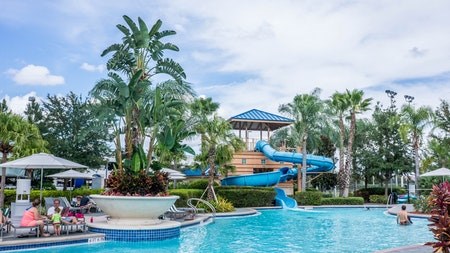The rise in popularity of Airbnb has seen somewhat of an explosion of people investing in short-term rentals as property owners look to capitalise on what is often seen as lucrative rental income.
While the income can be attractive, there are many complexities and pitfalls, says Natalie Muller, sales and rentals manager for Seeff Atlantic Seaboard and City Bowl.
According to an Airbnb Report released in October last year, 43,000 homes in SA are listed on the site (about 17,000 in Cape Town) and the typical host earns R28,000/annum based on 19 nights a year.
Ms Muller says, that property owners need to ensure that they are legally compliant as a priority and then, to really ensure you can meet your income targets, attract good calibre guests with a top quality product. She puts this into perspective by using Cape Town as a case study.
Cape Town is the busiest tourist city on the African continent and regularly features as a top destination, the latest being CNN Travel naming it one of the world’s most beautiful cities. The tourist season runs from around October to April annually and the city attracts people from across the country along with a great deal of foreigners who often spend lengthy periods in the city to escape the cold European winter.
Legislative landscape
Town and city councils have by-laws which regulate the use of property. In the case of Cape Town, there is a comprehensive “Guest Accommodation Policy” drawn up pre-2010 for the Soccer World Cup which regulates the zoning and requirement. Guest accommodation is also regulated in terms of the Municipal Planning By-law of 2015. You can generally operate a B&B from a full title house without prior consent, but subject to certain conditions (like, not renting out more than three rooms), but it is more complex when it comes to sectional schemes.
Sectional Title Schemes
Sectional schemes are more challenging, and would only be permitted if zoned GR2-GR6, which most of Cape Town properties are. If not, then permission is required from the City’s Development Management Department. The Sectional Titles Act and the Sectional Titles Schemes Management Act (STSMA) also empowers a body corporate to make or amend appropriate rules and holiday rentals could therefore be blocked if problematic. The Body Corporate must also be informed of names and ID numbers of all occupants and tenants must be informed of rules including security arrangements and noise (which can be problematic with short-lets).
Read more: Sectional title schemes can block Airbnb letting
Agreement and governance
Janine van Heerden, rentals manager for Seeff Hout Bay and Llandudno says that it is important to have a detailed short-term lease to regulate the tenancy, deposit and payment terms, cancellation policies, breakages, complaints and general conduct. Set out all rights and responsibilities clearly. Note also that the CPA (Consumer Protection Act) and the PIE (Preventions of Illegal Evictions Act) do not apply to short-term rentals, but the Rental Housing Act applies as a holiday rental is still seen as a lease. Inspection handovers and managing the tenant's deposit and the refunding of it in accordance with the Act therefore applies.
Set-up and ensuring a great guest experience
Ms Muller says further that for holiday and short-lets, the unit needs to be furnished and equipped for self-catering purposes with basic cooking, crockery and utensils as well as cleaning materials, bedding and towels as a minimum. Television and internet (WiFi) is also a prerequisite.
Top end apartments and villas may also need to be equipped with luxury finishes such as sophisticated home automation, temperature control, a heated swimming pool and a fabulous location with top class sea views, she says.
Inventory and insurances
Always conduct in- and outgoing inventory reports and document everything and every item. Insist on a minimum of weekly clean so that you can keep an eye on the condition of the property during the stay. Collect relevant details about your tenant (ID, bank details, copy of credit card), and do not allow occupation until the money has cleared in your (or the agency's) bank account. Take a sufficient deposit to cover potential damages, but don't scare guests with unreasonable requirements. Don’t forget to check your insurance cover as you may need added cover for Airbnb and holiday rentals.
Check-in, departure and other arrangements
Janine van Heerden says further that many property owners soon realise that short-term rentals, especially holiday rentals, are complex and perhaps best manged by a skilled rental agent. It requires a lot of administration and a hands-on approach. There is a lot of information to be communicated to the guests to ensure they know where the property is, what it offers, what to expect etc. There is also key handovers, inspections and assisting guests with their ongoing needs including how to operate the various equipment etc.
Lastly, put a bunch of flowers, fresh fruit or other welcoming gesture and it is always good to be on-hand to welcome the guests. Referrals and repeat business are vital to any short-term or holiday property owner.
Read more: 9 things to consider before becoming an Airbnb host




